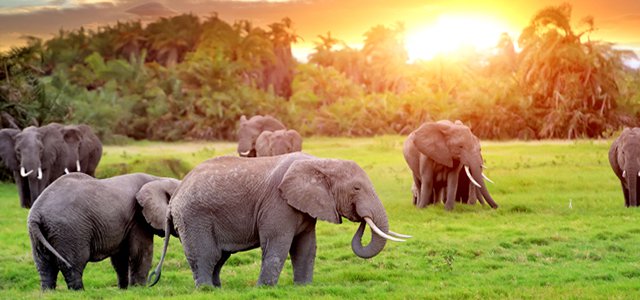
5 Books You've Probably Never Heard of, But Will Inspire You to Travel
Posted on September 19, 2016 by Julie Tulba & filed under Travel
We've all gone "Under the Tuscan Sun." Spent a "Year or Two in Provence." Hung out in the "Wild." Books are a wonderful way to become immersed in the world of travel, whether to get excited about an upcoming trip or to dream about a far flung destination you hope to visit one day. There are so many wonderful travel narratives out there, many eclipsed by those who have been made into Hollywood films, but that doesn't mean they're any less worthy or wonderful. Here are five books you've (probably) never heard of, but will undoubtedly inspire you to travel.
Es Cuba: Life and Love on an Illegal Island
Ever since the thawing of Cuba-United States relations last year, Cuba has been on every American’s mind, specifically in regards to visiting. But American journalist Lea Aschkenas didn’t just want to be another American tourist sipping her watered down mojito on the beach. She came to Cuba for a language program with an American social justice organization but sees nothing of the real Cuba, sees nothing of the daily struggles and hardships of the Cuban people. Quickly eschewing this privileged lifestyle after meeting a dark-skinned Cuban, Aschkenas ultimately moves to different lodgings, far away from the fake Cuba she and other visitors are constantly shown. It’s the type of book that will induce a flurry of emotions when reading it – you’ll laugh at the funny parts, mainly due to the cultural mishaps and differences she encounters as an American, become angry when you see the rampant racism and prejudice that rule Cuban society, and be sad when you see the genuine goodness and heart of the Cuban people even though they are given next to nothing in return. Cuba is on the wish list for countless Americans but keep in mind that everything is not always what it appears to be, especially in the case of Cuba.
A Tuscan Childhood
Everyone has been “Under a Tuscan Sun,” but what about being so in a different era? I’m referring to one of the most fascinating travel narratives I’ve ever read, A Tuscan Childhood by the late Englishwoman Kinta Beevor. She first visited the Tuscan region in 1916, at a time when Europe and Italy were still in the throes of war and decades before tourists toting Rick Steves guidebooks were there either. As the title of the narrative suggests, Beevor would spend her childhood there, specifically at the Fortezza della Brunella, a 15th-century castle in Tuscany’s Lunigiana region, until she was sent “back home” for a proper education (as was the custom at the time). Beevor’s rich descriptions of Tuscan scenery will enchant you and the parts in which she describes the many delectable meals she ate will no doubt cause hunger. If you didn’t know better, you would think Beevor’s life had been a work of fiction - an idyllic childhood spent at a Tuscan castle, narrowly fleeing from Italy and the Fascists in 1940 before being arrested or worse – and yet it’s entirely the truth. It’s the type of read that will have you happily ensnared from the first few pages and will leave you wanting to pack your bags prontisimo and head to Tuscany yourself.
Kinky Gazpacho: Life, Love & Spain
Any time we travel to a foreign country, we often “don’t belong” simply due to the fact that we’re not from there – we don’t speak the language, or know the customs and culture. But what about when you travel somewhere and you look different from everyone else, specifically where your skin color is often negatively received? Such is the case for African-American writer Lori L. Tharps who shares what it was like to be black in Spain, first as a college student, and then later on as an “adopted child” due to her falling in love and marrying a Spaniard. All in all, Tharp’s relationship with Spain and its people was almost always a love-hate one. For anyone who has ever traveled to or lived in Spain, you will enjoy Kinky Gazpacho because you will no doubt be nodding along saying “si” over the numerous and often funny Spanish cultural anecdotes she provides. And on a serious side, Tharps provides an insightful view of what it means to be a minority traveler and how racism, even when seemingly innocent, can still be damaging.
Finding George Orwell in Burma
After you read American writer Emma Larkin’s political travelogue set in Burma (also known as Myanmar), you will no doubt be experiencing emotions ranging from “I want to travel there” to “the Burmese people deserve more” to simply “wow.” While many people don’t know this, famed 1984 author Orwell was born in India and as an adult lived and worked in Burma (which was part of the British Indian Empire at the time) as a colonial policeman. Retracing Orwell’s steps in Burma, Larkin travels the length of the country bringing to life a nation and its people that have been largely cut off from the rest of the world due to its decades of military junta rule. For most people, our knowledge of Burma is typically limited to whatever event makes global news, usually of a negative nature. However, by reading Finding George Orwell in Burma not only will you have a look into the Burma of today, but also the one of yesteryear and see how the two are still so inextricably woven together, like in many former colonies.
Down the Nile, Alone in a Fisherman’s Skiff
“The girl’s got guts.” That statement adequately describes Rosemary Mahoney, a noted writer who sailed down the Nile River…alone. Like many adventuresome and fearless women, Mahoney was dead set on embarking on a solo trip down the Egyptian Nile in a small boat (she ends up in a seven-foot skiff). Her unique journey sets her apart in two major ways – she glimpses into an Egyptian life that few tourists ever see and experiences something Egyptian women never have (they don’t row on the Nile, period). Her journey is beset with issues and obstacles from the get go – no one wants to rent her a boat, civil unrest lies at every corner (her journey was undertaken before the Arab Spring and the overthrow of former Egyptian president Hosni Mubarak), crocodiles that wouldn’t think twice about consuming her, and the fact that she’s a non-Muslim woman traveling alone. However, none of those things stop Mahoney from going on her journey, one that future adventures couldn’t come close to topping. Mahoney’s prose is flowing and eloquent and the addition of historical references to previous Nile River travelers such as Florence Nightingale and Gustave Flaubert only add to the allure. Sailing down the world’s longest river is an adventure few of us will undertake, but what better way to experience it than through the writing of such an inspiring traveler?
Main Image Photo Credit: © iStock/mihtiander
About the Author: Librarian by day, die-hard travel fanatic and aspiring writer by night, Julie is the author of the travel and food blog, The Red Headed Traveler. When she’s not traveling she’s either testing out a new recipe (she loves making ethnic food) or being a wannabe foodie in Pittsburgh where she is attempting to eat her way through as many restaurants as she possibly can.




